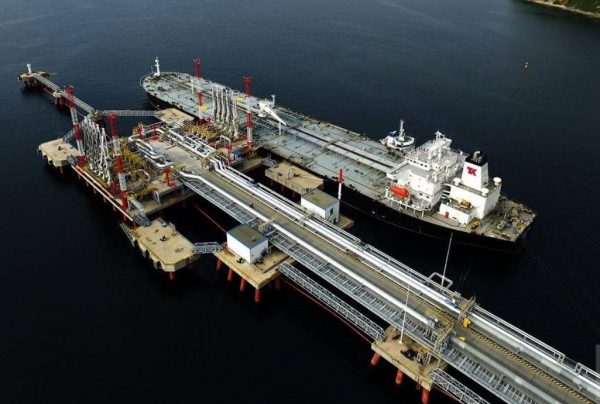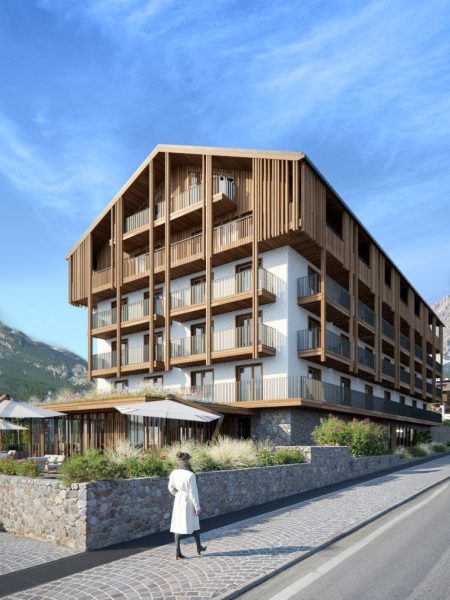
Insurers request insurance guarantees from the Ministry of Environment and Energy (RIS). In particular, they are pushing to open the compulsory construction insurance provided by the proposed climate law and not be limited to new buildings located in areas affected by global warming. The President of the Association of Insurance Companies of Greece (EAEE) Mr. Alexandros Sarigeorgiou, the General Manager Mrs. Margarita Antonaki and the President of the Property Committee Mr. Erikos Moatsos presented to the Minister of Environment and Energy Mr. Costas Skrekas that the changes should be to make sense of the specific provision of the climate law and not to lead to unbearable insurance policies for the citizens.
According to the National Climate Law, which has been put up for public consultation until January 28, the new buildings that will be located in high vulnerability zones will be compulsorily insured from 2025 onwards. In fact, the existence of an insurance policy will be a condition for the electrification of the building. However, this regulation is not in line with the basic philosophy of the insurance sector which stipulates that the insurable risk must be uncertain, future, cyclical, accidental.
As the representatives of the Association of Professional Insurers of Greece explain, participating in the consultation, the proposed regulation moves in the logic of a certain occurrence of risk, if it is chosen to insure real estate in high risk areas only. “The basic rule of insurance is the largest possible basis and spread of risk in order to achieve the so-called sufficient premium. As we often say the good fortune of the many to cover the misfortune of the few. One can easily understand how much premium will be required if this unprecedented provision remains,” they note.
For this reason, in the internet discussion that took place with the political leadership of RIS, the administration of EAEE requested a change in the framework of dealing with and taking risks in cases of natural disasters. In fact, it was agreed to create a joint working group, which will include RIS executives and the insurance industry, in order to objectively determine (and expand) the limits of compulsory building insurance as well as the safety valves to control the termination of insurance and impose sanctions.
Under the regulation contained in the climate law, new buildings located in potentially high flood risk zones as shown on the flood risk maps as well as near forest areas characterized by high fire risk, as defined by the , depending on the type of forest vegetation, its density, the distance from the buildings and the climatic conditions of the area. However, a permanent position of the insurance industry is the compulsory insurance of all real estate in Greece and against all catastrophic risks, including earthquakes.
At the meeting, the members of the EAEE presented to the Minister their proposals, which are based on models from other countries, such as e.g. the US, welcoming the first step taken with the specific regulation of the climate law, which refers to the obligation to pre-finance the risks through insurance, which proves that this mechanism can play a key role in adapting to climate change. change.
Latest News

Cost of Living: Why Greece’s 3% Inflation Is Raising Alarm
Greece appears to be in a more difficult position when it comes to price hikes, just as we enter the era of Trump’s tariffs.

Fitch Ratings Upgrades the Four Greek Systemic Banks
NBG’s upgrade reflects the bank’s ongoing improvements in its credit profile, Fitch notes in its report, including strong profitability, a reduction in non-performing exposures (NPEs), and lower credit losses

Trump to Announce Sweeping New Tariffs Wednesday, Global Retaliation Expected
With Trump's announcement just hours away, markets, businesses, and foreign governments are bracing for the fallout of one of the most aggressive shifts in U.S. trade policy in decades.

Inflation in Greece at 3.1% in March, Eurostat Reports
Average inflation in the eurozone settled at 2.2%, compared to 2.3% in February

Greece’s Unemployment Rate Drops to 8.6% in February
Despite the overall decline, unemployment remains higher among women and young people.

Jerry Kalogiratos Highlights Key Role of Energy Transition and Data Demand in LNG Outlook
Energy transition and the prospects of LNG were discussed at Capital Link’s 19th Annual International Maritime Forum, during a panel discussion with Jerry Kalogiratos (Capital Clean Energy Carriers Corp.)

Santorini Safe and Ready for a Dynamic Tourism Season
Authenticity, cultural heritage, and genuine experiences at the center of Santorini's new promotional campaign

Electricity Bills: Greece Announces Reduced Tariffs Schedule
Greece will now offer lower electricity rates between 11:00-15:00 and 02:00-04:00

Chevron Confirms Eyeing Natural Gas Exploration South of Crete
Chevron recently declared its intent to explore a third area, south of the Peloponnese.

Evangelos Marinakis: A time of change from which shipping can benefit
Speaking at the 19th Annual Capital Link International Shipping Forum Evangelos Marinakis stressed the challenges that shipping faces today












![Τουρκία: Μεγάλες βλέψεις για παραγωγή ηλεκτρικών οχημάτων [γράφημα]](https://www.ot.gr/wp-content/uploads/2025/03/ot_turkish_autos-90x90.png)











![ΕΛΣΤΑΤ: Αυξήθηκε η οικοδομική δραστηριότητα κατά 15,6% το Δεκέμβριο [πίνακες]](https://www.ot.gr/wp-content/uploads/2025/03/DSC9655-2-1024x569-1-90x90.jpg)

















 Αριθμός Πιστοποίησης
Αριθμός Πιστοποίησης